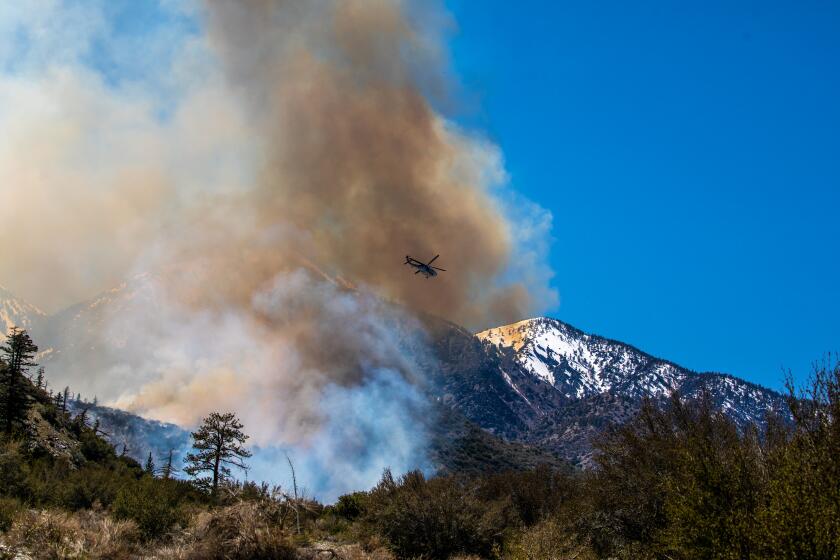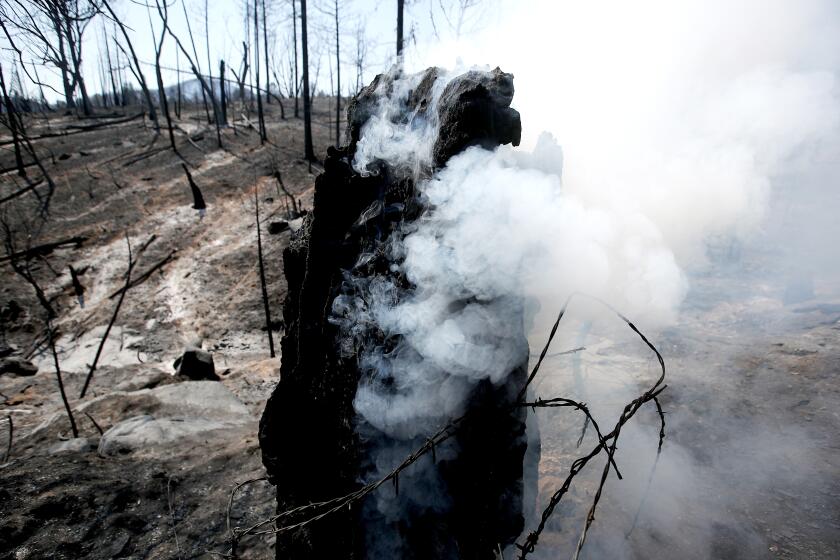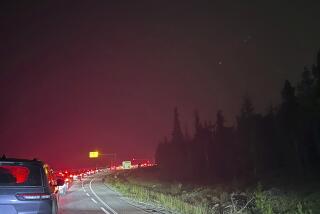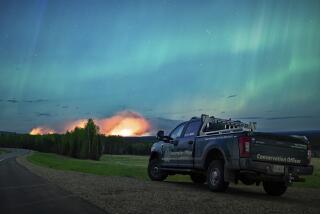Wildfires force thousands to flee, damage scores of homes in Canada’s Nova Scotia
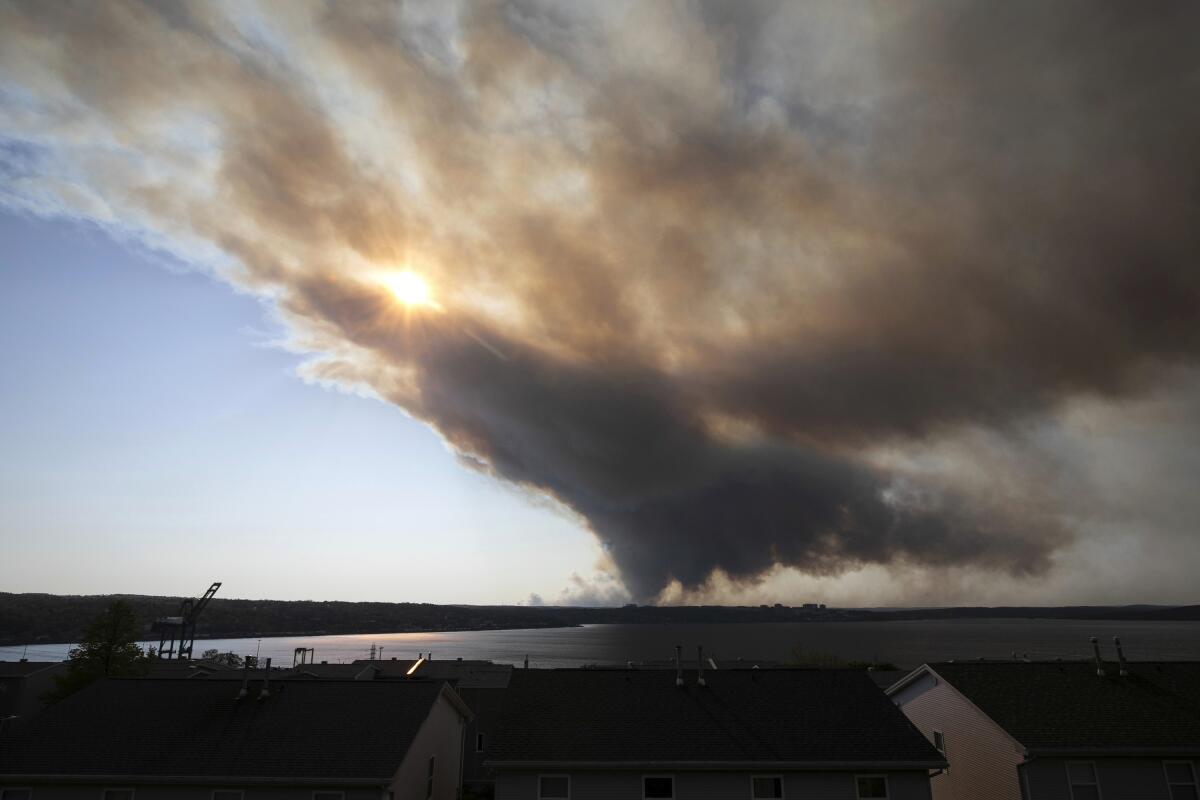
- Share via
HALIFAX, Canada — A wildfire on Canada’s Atlantic coast has damaged about 200 houses and other structures and prompted the evacuation of 16,000 people, many of whom were eager to return Tuesday to see whether homes and pets had survived.
Firefighters worked through the night to extinguish hot spots in the fire that started in the Halifax area on Sunday, Halifax Deputy Fire Chief David Meldrum said. He said it was too early to give an exact count of homes destroyed, but the municipal government put the toll at about 200 buildings.
Nova Scotia Premier Tim Houston announced the province would be banning all travel and activity in all wooded areas as of 4 p.m. local time. The ban applies to all forestry, mining, hunting, fishing, hiking, camping, off-road vehicle driving and all commercial activity on government lands.
Forecasters say portions of California could get a break this wildfire season, but at lower elevations the outlook is uncertain.
“We’re in a very serious situation in this province, and we need to take the steps that we can to protect Nova Scotia,” he told a news conference via a video call from Shelburne, Nova Scotia, where the province’s largest wildfire has been burning since the weekend.
“I wanted to get a sense of the damage here,” the premier said. “It’s extensive. It’s heartbreaking.”
Dan Cavanaugh was among two dozen people waiting Tuesday in a Halifax-area parking lot to learn if their suburban homes had been consumed by the wildfire.
“We’re like everyone else in this lot,” said the 48-year-old insurance adjuster. “We’re not sure if we have a house to go back to or the extent of the damages.”
Police officers were writing down the names of residents and calling people to be escorted to see what had become of their properties.
Sarah Lyon of the Nova Scotia Society for the Prevention of Cruelty to Animals said an eight-member team was preparing to head out into the evacuation zone to retrieve animals left behind.
Members of the Southern Sierra Miwuk Nation became the latest Indigenous tribe to watch homes burn despite knowing it could have been avoided.
In all, about 16,000 people have been ordered to leave their homes northwest of Halifax, most of which are within a 30-minute drive of the port city’s downtown. The area under mandatory evacuation orders covers about 38 square miles.
Sonya Higgins said she and more than 40 others waited in a nearby supermarket parking lot to be led into the evacuation area, in hopes of retrieving seven cats from two homes.
Higgins runs a cat rescue operation in Halifax, and she says the pet owners contacting her are “frantic” to find their animals and get them to a safe place.
Earlier in the day, fire officials said that with the return of dry, windy conditions on Tuesday, there could be a “reburn” in the evacuated subdivisions.
The extended forecast is calling for hotter weather on Wednesday and no rain until Friday at the earliest.
More to Read
Sign up for Essential California
The most important California stories and recommendations in your inbox every morning.
You may occasionally receive promotional content from the Los Angeles Times.
